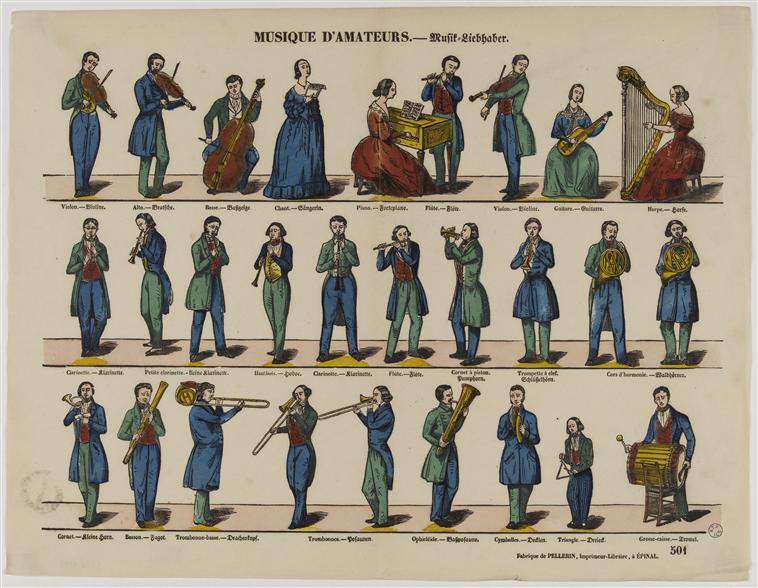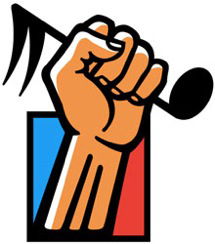I am beyond pumped to be headed down to Washington, DC next week for the Future of Music Summit.
The Summit is 2-day conference for music industry professionals and musicians, and is organized by the Future of Music Coalition. The FMC is a non-profit that advocates for musicians’ rights, and helps educate musicians on issues that are important to them, even though they may not realize it. Besides giving musicians a voice in Washington, they may be best known for their Artist Revenue Streams research project that gives incredible insight into the details of how musicians make money in the digital age. The Summit will begin with the latest analysis on that treasure trove of data.
I’m also looking forward to the rest of Monday morning, where conference attendees will be serenaded by government leaders in intellectual property, followed by a counterpoint on copyright from musicians and music businesspeople.
I’d like to ask the copyright panels how they would reform copyright to balance the needs of the individual and the culture versus the need to profit from corporations who have all the legal and lobbying resources to shape the law. Shouldn’t we decriminalize song sharing by adopting some of the ideas successfully employed by Creative Commons? Don’t we have enough studies showing that “piracy” actually increases fan engagement and spending?
I would also question whether virtually infinite copyright terms perpetuated by corporate lobbying have anything to do with the original intent of copyright. I would ask the musicians if copyright exploitation is perhaps a less ethical business model than direct fan patronage, and now that technology has enabled the latter, we should focus on what technology now enables rather than stifling innovation to protect anachronistic models.
Finally, I would posit that free access to music is a net benefit for promoting all of the underlying tenets of copyright: the right of the individual to be compensated for their labor, the right to own and control one’s personal expression, the right of society to benefit from creative works, and the right of a culture to use those works to perpetuate itself. Has anyone noticed how our copyright system works against these ideals by hoarding wealth at the top, appropriating our personas, creating a large deadweight loss in music consumption and denying cultural re-use of creative works, in a culture increasingly based on re-use?
All that will probably have to wait for the cocktail party. Maybe I can get the person who curates the copyright panels drunk and you’ll see me and Larry Lessig up there next year wrestling some lawyers from the Copyright Alliance and the Center for Copyright Information. The gauntlet has been thrown.
The lunch breakout session is the “Band as a Business” workshop, which is funny, because that’s almost the same name as my free “Band as Business” video course on Udemy. I reached out to workshop facilitator Paul Rapp when I realized he was 2 hours north of me in Albany. I asked him why crowdfunding wasn’t covered, considering it’s the next big thing in how musicians can make money. I also dropped the whole copyright spiel on him, so maybe I shouldn’t be surprised I didn’t hear back. Looking forward to taking the workshop nonetheless, as there’s always something new to learn, especially for those who teach.
The rest of Monday is dedicated to the “Future” part of the Summit, where we’ll be discussing the cutting edge of music markets and marketing. I expect artist discovery and fan engagement to take center stage here. Over the last few years, we’ve really seen the music industry embrace the kinds of marketing best practices that were developed by natively digital companies. In particular, the idea of a “fan lifecyle” (analogous to a “user lifecycle”) is central to any modern musician’s business strategy. Success comes from identifying target fan markets, coming up with strategies to engage those fans, and then creating a system by which those fans drawn into an integrated marketing funnel, generating more revenue the deeper they go. Digital tools and services can go a long way to facilitate marketing and conversion, and I’ll be curious to see which names from that industry are dropped.
The last panel of the day is the one I’m looking most forward to — a discussion of streaming, crowdfunding, and the future business models of music. Most people are confused when it comes to this topic, and I understand why. But I’ve been a digital native all my life, and I’ve dedicated my life to music, technology and the intersection in between. The “future” of music business is, without a doubt, many different streams. The days of one dominant stream from copyright exploitation are leaving us. When we talk about the “old” business model dying, we’re not just talking about selling CDs or MP3s, we’re talking about paid vs. free access to recorded music, and things are moving inexorably toward free. It’s a net benefit for fans and musicians, and more music is being made and listened to than ever before. It’s awkward and sometimes devastating to professional musicians who are having trouble adapting, or who put their heads in the sand and blame their own fans for their career woes.
At the same time, the “new” business models like crowdfunding are revolutionizing the band as small business… and it’s all just the tip of the iceberg. We have seen but a fraction of the potential for new music markets and models. Perhaps if the market wasn’t mostly controlled by a handful of enormous corporations, it would be agile enough to shift. But no matter, individuals will flip the paradigm and enable new categories of paid musician that defy the dominant “professional” title. Indies will continue to innovate. The majors will hulk along collecting back catalog royalties until music is a utility like electricity or water… and we’ll be there sooner than you think.
We’ll need a drink after that one. Lucky for me, Mailchimp‘s buying.
The second and final day of the conference features a potpourri of unexpected topics.
A history and analysis of the crossfader “as a tool for re-thinking music as a form of social action” seems to jive nicely with my piece on how copyright law undermines the power of music to effect social change. With no de minimis standard for digital sampling, the crossfader seems to be regarded more as a nuclear weapon than a tool for social change by the record industry.
I’m also looking forward to the panel on music and social change. MC5’s Wayne Kramer (who makes an appearance in my Band as Business course) chairs a particularly interesting pursuit involving instrument donation to incarcerated people. I’m a huge fan of music charities, and music’s ability to provide meaning, healing, joy, comfort or entertainment to people who are aimless, suffering, unhappy, uncomfortable or just bored. It’s the reason we have music! Too often we lose sight of music’s true purpose in pursuit of profit. As such, the following panel on “Nonprofit Models for Supporting Independent Music” shares similar potential for being an awesome eye-opener.
Before lunch, the Director of External Affairs from the U.S. Department of Health and Human Services will run out on stage and scream, “Musicians can afford health care now!” and then disappear in a flurry of pyrotechnics. Or not. But either way, I can’t think of a better place to tout the Affordable Care Act than a conference for musicians, even if I can build a better website myself, for hundreds of millions of dollars less.
The breakout session I’m headed to after lunch is all about how we can provide a better career education to musicians. That’s my mission too! I just launched the Songhack website to do just that — educate musicians on how they can “hack” the music business and make their own careers. My work with John Snyder at Artists House Music (we did the Band as Business course) has given me a unique look into the realm of institutionalized music career education, and the huge challenges it faces. I look forward to gaining more insight from the panelists of this talk… because despite the best efforts of the FMC, most musicians don’t have any idea how musicians make money!
Tuesday wraps up with a more philosophical take on the issues from our distinguished hosts and a group of accomplished musicians. Diving deep on the cultural value of music with the Producer of Blue Oyster Cult sounds like a pretty sweet ending to me.
I’ll be missing the conference-closing NPR All Songs Considered Listening Party. Gotta hightail it back to New York to keep the entrepreneurial machine running. But while I’m there, I’ll be tweeting up a storm and posting daily updates, both here at Mediapocalypse and over at the Songhack blog. Please join me!
Are you headed to the FMC Summit? Do you want to tell me how wrong I am about free access to music and throw a drink in my face? (I know there are some of you out there!) Or have you seen the same bright future for music that I have, and want to join forces to spread the good vibes? Leave me a comment or drop me a line on Twitter and we’ll hang.
See you in DC!



